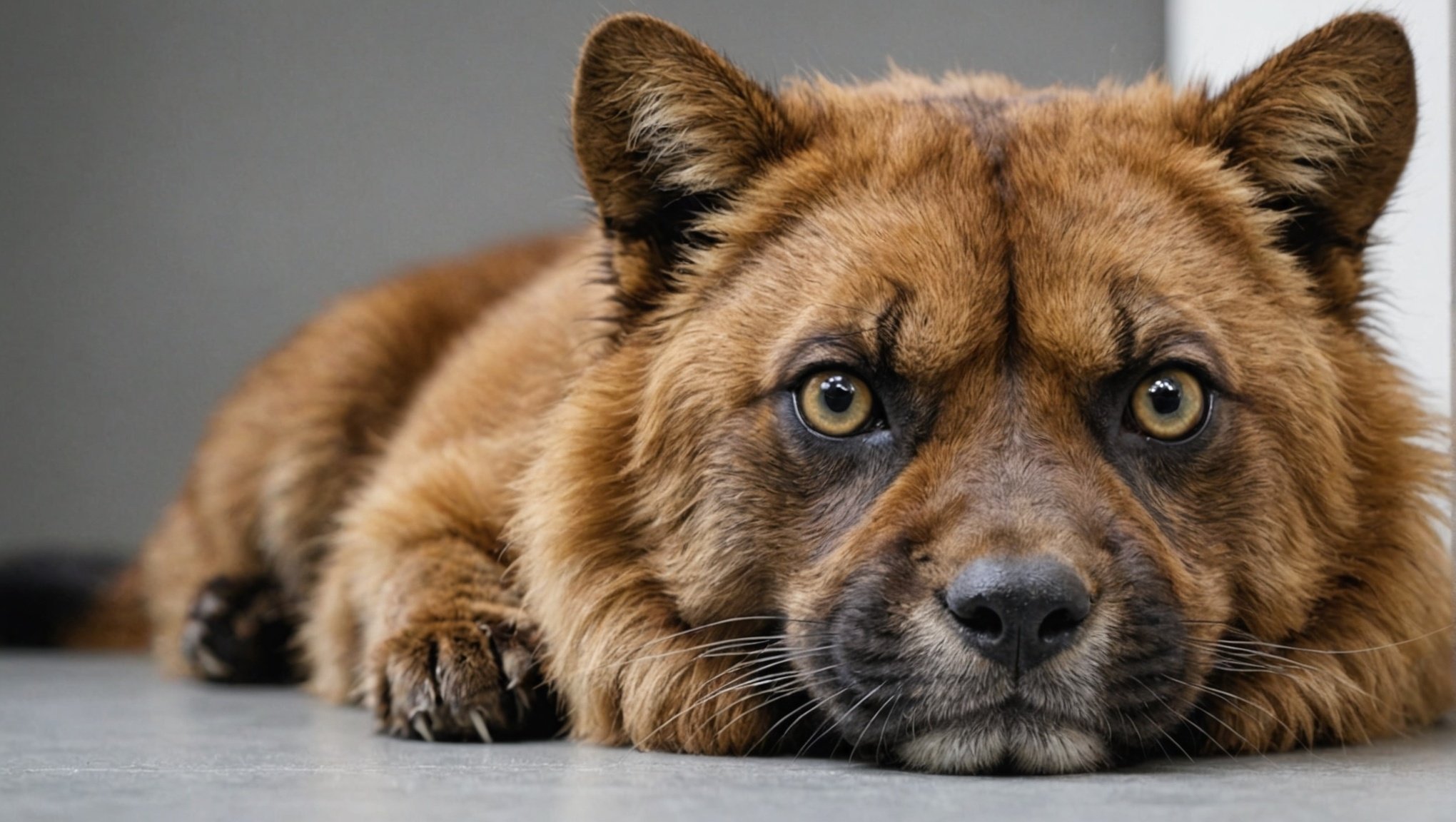When you bring an imported pet into your home, it’s more than just a new family member. It’s a cultural exchange, a piece of a far-off land, and a way to broaden your personal and household horizons. However, the introduction of imported pets into the UK also brings with it a risk of exotic diseases, many of which are unfamiliar to the local veterinary community.
Understanding these diseases, their signs and symptoms, and how to diagnose and treat them is vital for the well-being of the pet and the safety of other animals and humans in the vicinity. This article will delve into these topics, helping you to better understand the risks and what you can do to ensure your pet stays healthy.
Additional reading : What are the latest advancements in robotic surgery that UK surgeons can adopt for gynecological operations?
Recognising the Risk of Exotic Diseases in Imported Pets
One of the first steps towards protecting your pet and others from exotic diseases is to understand the risk involved. When you import a pet, particularly one from a country with a different climate and ecosystem to the UK, there’s always a chance that the animal could bring in a disease not commonly seen in domestic pets.
Diseases can be transmitted in many ways, such as through the bite of an infected tick, or through contact with an infected animal’s bodily fluids. One example of an exotic disease prevalent in dogs, or Canis, is Canine Babesiosis, which is transmitted by ticks and can be potentially fatal if not treated promptly.
Also to read : What specific techniques should UK dietitians use to design renal-friendly diets for patients with kidney disease?
Even if your imported pet looks healthy, it could be a carrier of a disease that it’s immune to but could infect other animals. It’s also important to remember that some diseases can cross the species barrier and infect humans as well.
Diagnostic Measures for Exotic Diseases
Once you understand the risks, the next step is to learn about the diagnostic measures taken by veterinarians to detect these diseases. Some diseases can be diagnosed through simple blood tests, while others may require more complex procedures such as biopsies or advanced imaging.
Your veterinarian will look for signs of infection and other abnormalities. The ‘signs’ that a veterinarian will search for can vary widely, depending on the disease. Some illnesses are characterised by external symptoms like rashes or bald patches, while others may cause behavioural changes, weight loss, or other less visible signs.
Given the exotic nature of these diseases, your local vet may need to consult with a specialist or refer your pet to a veterinary hospital with more advanced diagnostic capabilities. Collaboration within the veterinary community, both nationally and internationally, plays a key role in diagnosing and understanding exotic diseases.
Treatment of Exotic Diseases in Pets
Once an exotic disease has been diagnosed, the next step is to treat it. The treatment will depend on the specific disease, its severity, and the overall health of your pet.
Antibiotics and other medications are often the first line of treatment for many diseases. If ticks are involved, tick control products will need to be used and possibly the removal of ticks if they are still present on the animal.
In more severe cases, hospitalisation may be required. Some pets may require surgery or other invasive procedures to treat the disease. Your veterinarian will advise you on the best course of action based on your pet’s specific needs and circumstances.
The treatment of exotic diseases can be complex and lengthy, requiring long-term care and potentially significant changes to your pet’s lifestyle. It’s essential to maintain close communication with your veterinarian and follow their advice throughout the treatment process.
Preventative Measures for Imported Pets
Prevention is always better than cure. When it comes to exotic diseases in imported pets, there are several steps you can take to minimise the risk.
Before importing a pet, research the common diseases in its country of origin and talk to your vet about preventative measures. Vaccinations, regular check-ups, and maintaining a healthy lifestyle for your pet can also help to reduce the risk of disease.
Once the pet is in the UK, maintain regular veterinary checks and keep an eye on your pet for any signs of illness. If you suspect something is wrong, contact your vet immediately. Early detection and treatment can significantly improve the prognosis for many diseases.
In the case of dogs, be vigilant about tick control, particularly if your pet spends a lot of time outside.
Collaborative Efforts in the Veterinary Community
The challenges posed by exotic diseases in imported pets are significant, but they’re not insurmountable. By working together, the veterinary community can pool their knowledge and resources to diagnose, treat, and prevent these diseases more effectively.
Collaboration could involve sharing case studies, consulting with international colleagues, or referring complex cases to specialist centres. The use of digital technology, such as online forums and telemedicine consultations, can also help to bridge geographical gaps and facilitate collaboration.
Furthermore, ongoing education and research are essential to improve our understanding of these diseases and develop more effective diagnostic tools and treatments.
The Role of Veterinary Professionals in Dealing with Exotic Diseases
Veterinary professionals play a fundamental role in diagnosing, treating and preventing exotic diseases in imported pets. Given the potential for these diseases to be transmitted to humans and other animals, this is a significant responsibility that requires specialist knowledge and skills.
Veterinary professionals have access to a range of diagnostic tools, including blood tests, biopsies and advanced imaging. These tools allow them to detect diseases like Brucella Canis, a bacteria that can cause illness in dogs and humans, or identify tick-borne pathogens that may be present in pets imported from regions where tick-borne diseases are prevalent.
Once a disease has been diagnosed, veterinary professionals can develop a treatment plan tailored to the specific needs of the pet. This could involve prescribing medications, carrying out surgery, or recommending lifestyle changes to help manage the condition.
Veterinary professionals are also at the forefront of preventative measures. From advising on the risks of pet travel to foreign countries, to administering vaccinations and other preventive treatments, they play a crucial role in reducing the risk of pets contracting and spreading exotic diseases.
Veterinary services often go beyond the individual vet clinic, with professionals collaborating across different practices and even internationally. Such collaboration can involve sharing clinical signs and case studies, consulting with colleagues via tools like Google Scholar, or referring pets to specialist centres when necessary.
Conclusion: Protecting Pets and People from Exotic Diseases
In conclusion, the introduction of imported pets to the UK opens the door to a variety of exotic diseases, some of which may be unfamiliar to local vets. However, the risk can be managed effectively with the right knowledge and resources.
Early detection is key, and regular checks for clinical signs of illness in your imported pet — be they dogs, cats or other animals — can greatly improve the outcome. Regular veterinary checks, vaccinations and preventative treatments can also help to protect your pet and any others it may come into contact with.
The role of veterinary professionals in this context cannot be overstated. Their skills and expertise are invaluable in diagnosing, treating, and preventing exotic diseases in imported pets. Furthermore, their commitment to collaboration and ongoing education helps to ensure that the veterinary community is well-equipped to deal with these challenges.
Whether you’re considering importing a pet or already have an imported pet at home, it’s important to be aware of the risks and to take all necessary precautions. With the support of your vet and other veterinary services, you can provide your pet with a safe and healthy life in their new home.
Remember, when it comes to exotic diseases, prevention is always better than cure. Stay informed, stay vigilant, and keep your pet’s health at the forefront of your mind. In doing so, you’ll not only be protecting them, but also helping to prevent the spread of exotic diseases in the UK.











